November 1, 2020
Grocery Run redirects surplus food to those who need it most
Yodit Libab knows what it’s like to have less money than what’s needed to properly feed a family. In 2009, she arrived in Canada as a refugee with three children and high hopes for a life in Edmonton that would be far easier than what she had experienced. She’d been a civil engineer back home, but language and cultural barriers meant Libab couldn’t initially find work in Edmonton. For six months, the only food on the family’s table was milk and bread.
Now, Libab works as a broker for the Multicultural Health Brokers Co-operative (MCHB), where she works directly with people experiencing those same challenges. Through the co-operative, brokers from around the world help clients with everything from improving food security to finding affordable housing options to securing mental health supports and employment opportunities. In 2016, Libab and other MCHB brokers were teaching women about parenting in two cultures.
“We kept hearing their stories. I was concerned about them,” says Libab. It was clear that many of them struggled with food insecurity, just as she once had.
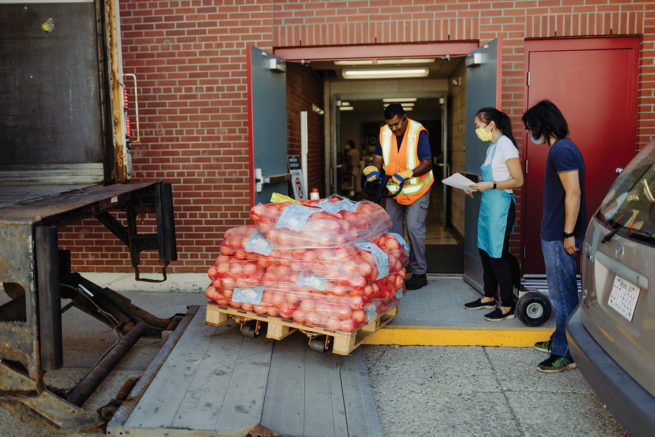
Meanwhile, Maria Mayan at the University of Alberta had conducted a study that looked at improving the healthy weight and eating habits of pregnant women in Edmonton who came from four African communities. The research showed that most of the women could not afford to meet basic food needs, never mind provide nutritious food choices at each meal.
MCHB responded by creating Grocery Run, a program that connects hundreds of immigrant and refugee families every week with culturally appropriate, healthful food that has been rescued, donated or purchased.
“There is immigration trauma, language barriers, structural barriers, with everything coming from poverty. A significant number of families were actually paying 75 upwards to 100 per cent of their total income on housing. That leaves very little to pay for basic needs,” says Julia Tran, community resource co-ordinator for Grocery Run.
Grocery Run redirects surplus food from organizations including Cobs Bread, The Organic Box and The Little Potato Company to help families meet their same-day food needs. Families are outfitted with weekly hampers that include staples such as lentils or rice, along with fresh fruits, vegetables and bread. Other agencies in the city may supplement the minimal resources of a family, says Tran, but the Grocery Run might provide the only food the family gets all week.
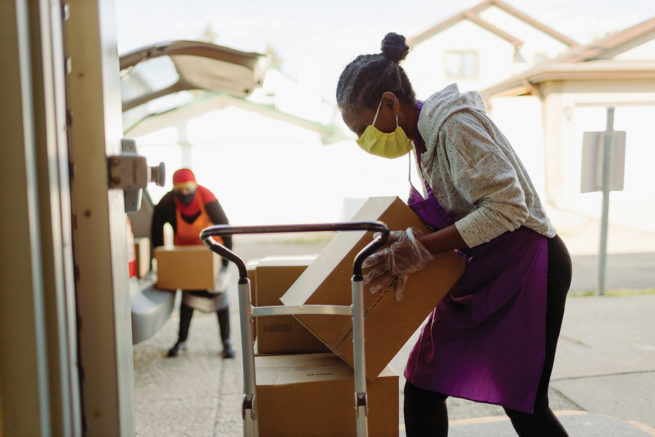
The food might just be approaching its best-before date but is still perfectly suitable for consumption. The model is a triple-win — saving food from the landfill, while benefiting the community socially and economically.
Tran says the co-operative also took the time to determine what food the families would want to see in the hampers. Many mainstream supports include processed foods that MCHB clients would not see back home. Some of the food might be unfamiliar or it might go against cultural beliefs — for example, canned goods are viewed by some cultures as unsafe, says Tran.
“One thing we are really tied to here at the co-op is the dignity of the families, and so we try to not force any families to eat any foods they aren’t comfortable with. That’s why the engagement with communities was so important,” says Tran.
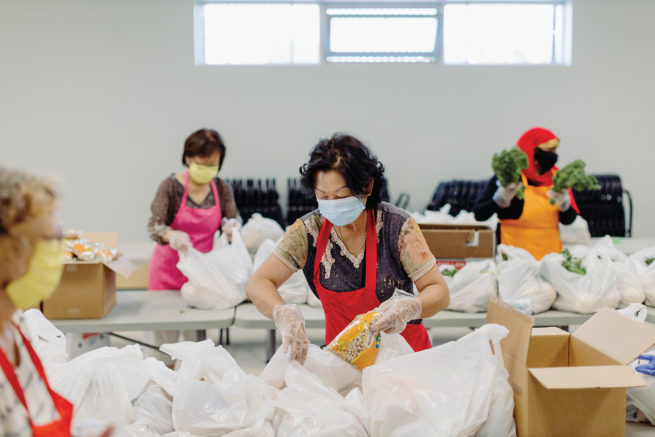
Before the COVID-19 pandemic, Grocery Run was serving 100 families but that number has now increased to 430 as many more families face financial barriers. In the past, the organization would receive donations from the Leftovers Foundation of food that was slightly damaged or nearing its best-before date, but the pandemic has created shortages that affected that supply.
As a result, Edmonton Community Foundation donated funds to purchase local food from various vendors, including Sunfresh Farms and NPS Farms. And now, the majority of hampers are delivered to ensure the safety of clients, many of whom are seniors, immunocompromised or differently-abled.
Meanwhile, Tran says, the pandemic is making the MCHB reconsider how it looks at food as a resource and begin working toward restructuring Edmonton’s food system.
“We’re looking at the production of food and food agriculture as well as social enterprises. A lot of our families are farmers or previously had micro-enterprises, either food stalls or vendors in their countries. So, they have a lot of skills and interest in food,” says Tran.
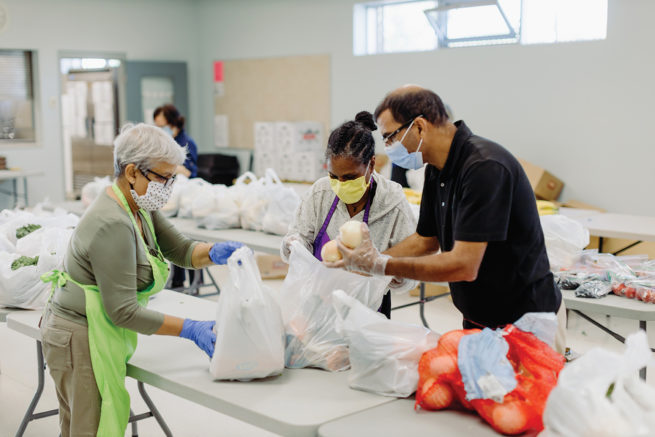
One future project is a planned partnership with Lady Flower Gardens, a non-profit organization that produces food for the city’s vulnerable populations including clients of MCHB. The co-operative would like to explore opportunities related to food production, potential employment training and community capacity-building.
Kelly Mills of Lady Flower Gardens vouches for how being involved with food production can improve lives in a way that goes beyond access to the food itself. For people who have always been on the receiving end of help, contributing to the process can improve self-esteem and give them a sense of altruism, she says. “Alberta Health Services, one of our groups, has done a lot of research in the last four years and proven that their mental health is increasing from being a part of our projects,” says Mills.
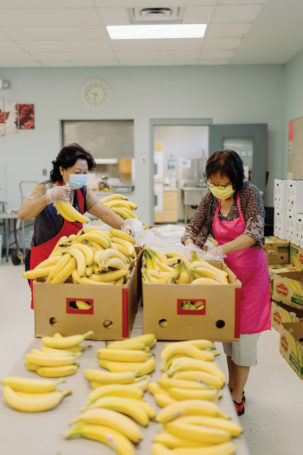
While the primary purpose of Grocery Run is to provide food security, it also serves as a starting point to a conversation that leads to other quality of life improvements. Families, who are referred to the program by brokers, faith leaders or physicians in the community, first have their basic food needs met. Then each family is connected with a broker from their own ethnocultural community who shares their language and often has a deep understanding of their reality.
As one of those brokers, Libab speaks with families about what they need, whether it’s childcare support, securing a place to live or pursuing education. She knows the questions to ask and what supports are most needed as she remembers the pain of being in their position.
“We give them some food but it’s not enough. The big thing is, we give them hope. Even if it is not enough, we keep helping them,” says Libab.